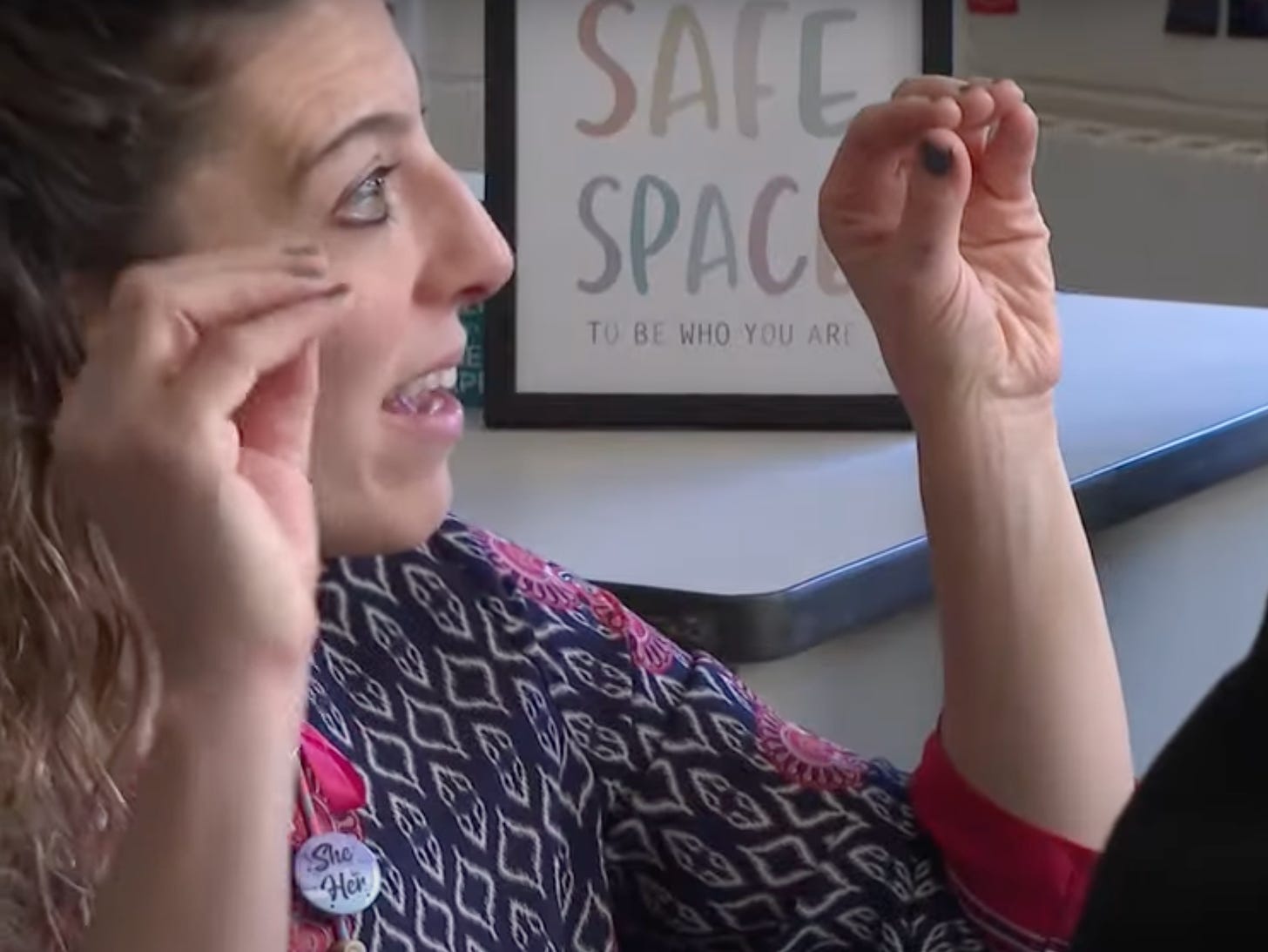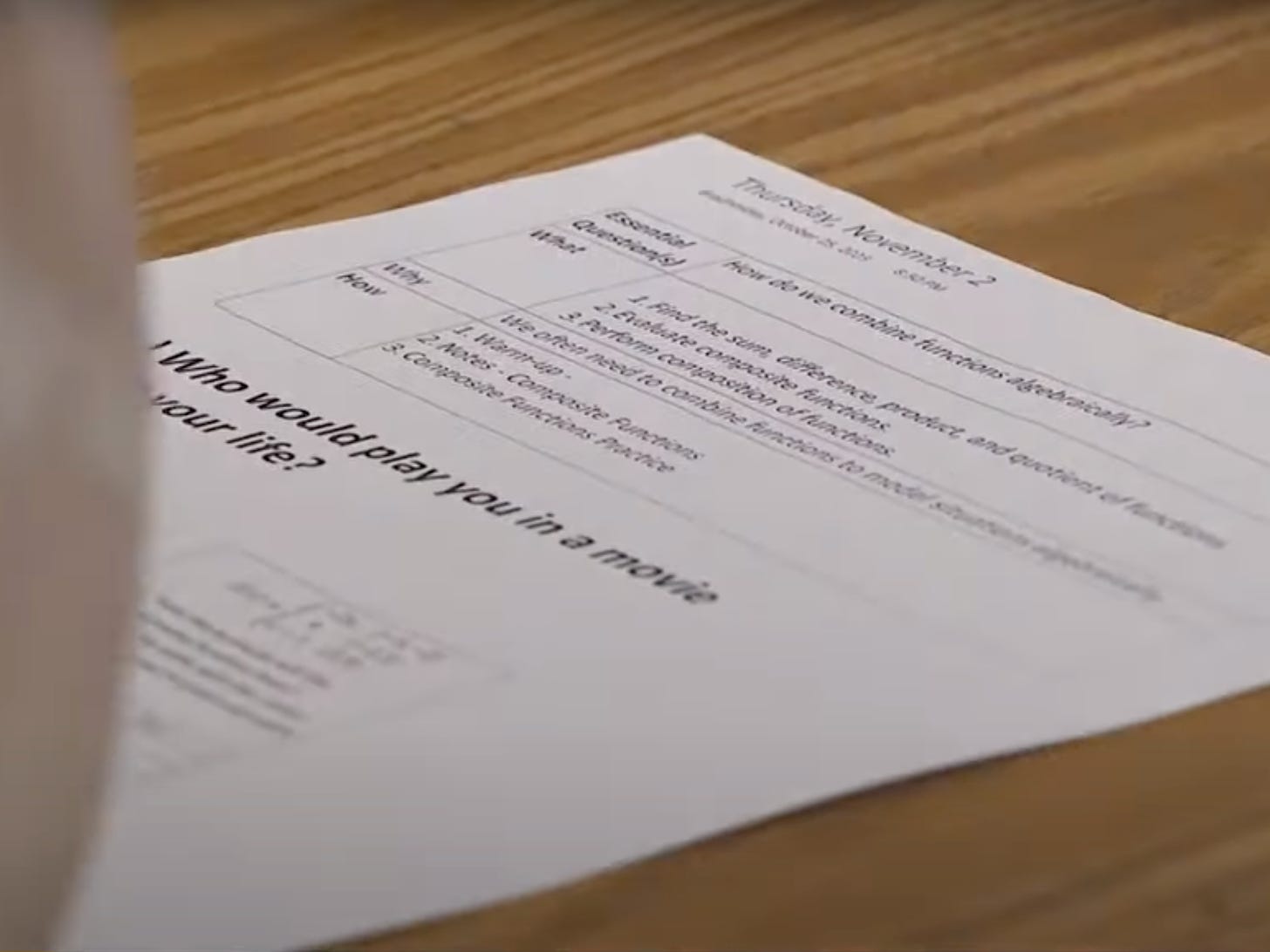Ideology is killing independent thought
Educators are poisoning school curricula with the politics of social justice, which is anathema to diversity of thought.

According to a sign on her desk, Julie Lazzaro’s classroom is a “safe space” where students can be who they are. Clipped to her bosom is a pin declaring “she/her” pronouns.
Lazzaro was recently interviewed by CBS News for a report on Pittsburgh’s efforts to equalize education outcomes.
Re-read that one more time: equalize education outcomes.
Insanity!
The city’s public school system hired a company called Quetzal Education Consulting to help make math outcomes more “equitable” and “anti-racist.” Quetzal received $50,000 to run workshops to help math teachers close the gap in math performance between white and African-American students.
Quetzal, which describes itself as “a Black and Brown womxn-led” firm, says teachers need to “center” the learning needs of students of Color, disrupt “oppressive practices in STEM instruction,” and help students reclaim “their ancestral genius.”
Lazzaro was one of the teachers who participated in Quetzal’s workshops, and she said it was “awesome being able to be given assignments and challenges” that helped her think about how to be a better teacher for her Black and Brown students.
In the CBS video report, you can see a classroom assignment Lazzaro had given her students. On top, a question reads: “How do we combine functions algebraically?” Then, in large letters halfway down the page, is this:
“Who would play you in a movie about your life?”
We’re guessing that question falls under the category of disrupting the oppressiveness of STEM instruction. To us, it feels like puerile pandering.
If you’re new to this movement, welcome to the world of social justice, decolonization, and social emotional learning (SEL). These seemingly well-intentioned educational trends are actually the final nails in the coffin for our youth, who now have less chance than ever to develop the capacity to think broadly or deeply.
Diversity of thought is essential to a robust education, while social justice is anathema to diversity of thought. These ideological pursuits end up narrowing the minds of students by giving them a very specific lens through which to view every subject.
The movement to skew education in political directions began decades ago but has taken hold especially in the last decade. It has its roots in the ideas of Paulo Freire, a Brazilian Marxist education theorist whose 1970 book, Pedagogy of the Oppressed, espouses the belief that oppression and liberation are crucial themes for education.
In the 1980s, this theory evolved into what is now known as ‘critical pedagogy,’ a perspective that sees all subjects, including math, as a way to analyze and challenge social and political issues.
Education Week ran a special report in 2020 on teaching math through a social justice lens, which it says helps “students see the subject’s relevance and recognize that they can use it to become change agents in the world.”
Many teachers prefer to think of math as a neutral zone, where the “universal language” of numbers doesn’t include highly charged events of the day—and prefer to keep it that way. But advocates of social justice math argue that that approach misses something important: the chance to help students use math to understand and critique the world around them, and find ways to change it.
This turns the objective of learning math on its head. It posits that the only way to make math relevant for students is to politicize it, turning it into a tool for liberation from oppression.
An article by a former educator, Bret Turner, for the website Learning for Justice is a perfect illustration of this idea in action. Turner wrote about teaching first graders about white supremacy during a lesson about money:
Studying money is a staple of first-grade math: counting coins, using and understanding correct notation, making change, solving word problems. Its immediate relevance to the real world makes it particularly enticing for kids. But therein lies a close proximity, at times an uncomfortable one, to our government’s legacy of commemorating, almost exclusively, white men. For some of us, particularly white folks, ignoring the faces on our money is pretty easy; what’s more, actively noticing who we’ve chosen to memorialize may be the bigger challenge. Fun facts like “Washington is on the dollar bill and the quarter, and he was our first president” conveniently omit his legacy as an enslaver, for instance. Each bill and each coin in our wallets serve as blunt—but strangely subtle—reminders that the diversity of our country is not represented on some of our most visible memorials, and that we canonize only the powerful.
Turner says when he pointed out how “the story of our currency is the story of wealthy, white, male America,” his students “grew furious at the severe inequity of it all.” Soon, the children started suggesting their own ideas for who could be on our currency, including:
Martin Luther King, Barack Obama, “a Jewish girl doctor,” “someone from Mexico,” and some of their relatives. Later on, many kids created their own paper money with images of mothers, grandmothers, aunts, and sisters: They were filling in our missing stories.

Sure, Turner missed the opportunity to teach his students simple arithmetic, or a more nuanced lesson about how the spending power of a dollar has changed over time, or even the magic of compounding interest. He did, however, inculcate in them a righteous indignation over something they had never before considered and over which they have no control.
This incessant push to politicize and radicalize children from cradle to grave, comes at the expense of critical debate and intellectual diversity. The result is an educational echo chamber where only a very narrow group of viewpoints is tolerated. This stealthy shift towards indoctrinating children rather than educating them will not end well:
We’re raising a generation of people who lack the ability to think critically and evaluate information objectively.
They will not be able to discern truth from lies, and will see everything through the lens of oppression.
A less diverse electorate may struggle to effectively participate in democratic governance.
Innovation will die as we continue to focus on conformity rather than creativity.
The lack of exposure to a range of perspectives will make future employees unable to adapt in the workplace and integrate diverse ideas.
So, in the name of ‘social justice’ we are imperiling everything from a person’s chances of career success to the health of our democratic institutions. Not that those things will matter much in future if the powers-that-be have their way. Easy-to-understand narratives, ideally in a black-and-white binary (good guys versus bad guys), will mean an infantilized populace that is oh-so-easy to manipulate. And, with everyone up in arms in the latest contrived scandal, the plunder can continue unabated and no one will be the wiser. That’ll be proof that our education system is fine, thank you very much.



